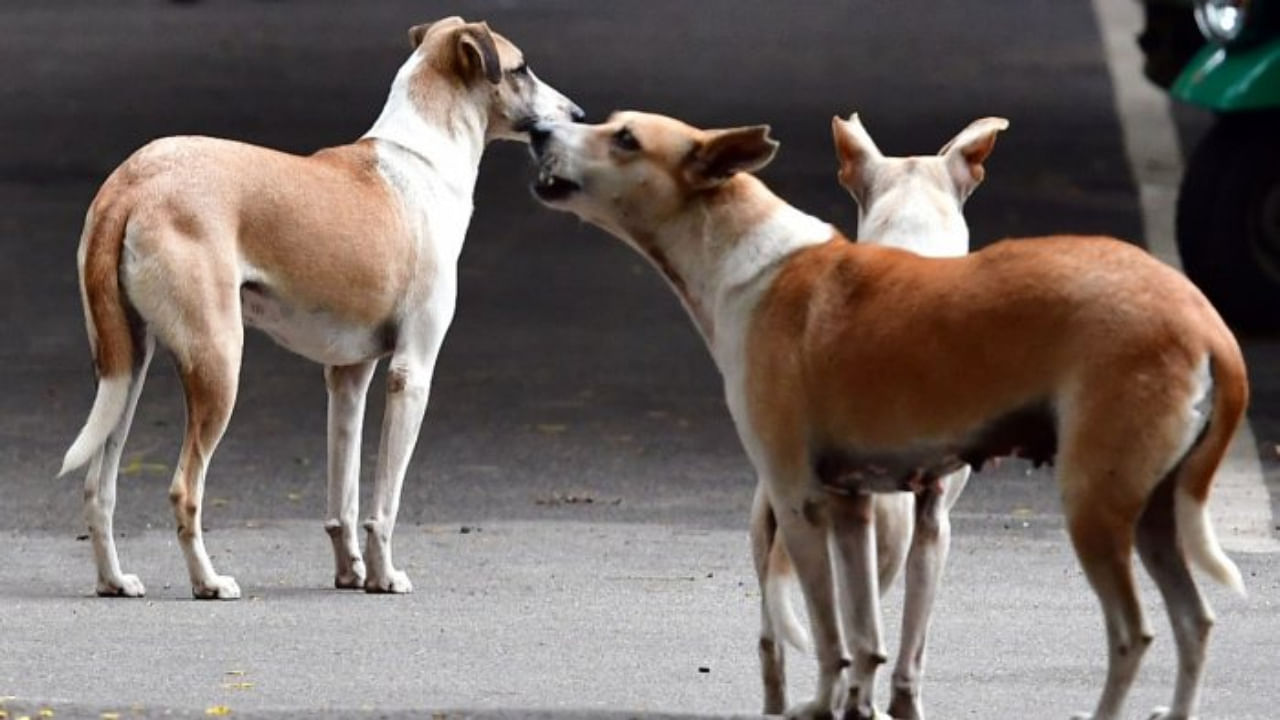
Dogs are generally referred to as man's best friend, a testament to their loyalty, but they are of late being viewed with fear and suspicion on the streets and in the homes in Kerala, as the state witnesses an increase in dog bites.
According to the state health department, instances of dog bites have already reached close to two lakh presently as compared to 2.21 lakh last year. The fear among the public would appear to be justified as 19 people have died this year till date due to rabies and one among them was a 19-year-old college student from Palakkad district, who died of the disease despite being vaccinated.
Besides their apprehensions regarding effectiveness of the vaccine, the entire ordeal, including several doses of vaccine that one must take after being bitten, also shapes the way they see canines, be it on the street or someone's home. It is evident when Meenakshiamma, who is in her eighties and a resident of Thevalakkara in Kollam district, narrated the agony she underwent after being bitten by a stray dog last month when she had gone to buy milk in the morning at a house in their locality.
While a large number of stray dogs roam around her neighbourhood, she had never paid much heed to them. "I am scared of them now. The bite was painful. On top of that, I had to get four doses of the vaccine. Each time, it was painful," she told PTI. The seven persons who were bitten in Thalayolaparambu area of Kottayam district by a stray dog last week, when the canine had gone on a biting spree adding to the nearly two lakh dog bites in the state this year, may also have a similar view.
Also Read | Introduction of wild cheetahs to Indian reserves involves risks and opportunities: top South African expert
Amid the prevailing scenario, state Health Minister Veena George has ordered an expert committee to conduct a scientific inquiry into each of the deaths due to dog bites in the state this year and submit a report. The state machinery has also geared up to deal with the menace of dog bites, by holding high-level meetings to work out action plans, taking steps to set up more ABC centres in Kerala and procuring more anti-rabies vaccines.
According to the government officials and the Society for the Prevention of Cruelty to Animals (SPCA), the answer is not just sterilisation or animal birth control (ABC) but also widespread vaccination of our canine 'friends'. The officials shared the same view that sterilising dogs would not immediately bring down the canine numbers nor would it help to prevent rabies infections in dogs or its transfer to humans through bites.
It is more important to vaccinate both pet dogs as well as the strays seen roaming the streets in packs across the state. According to the last census of stray dogs in the country conducted in 2019, the numbers in Kerala were close to three lakh, the Animal Husbandry Department said. According to the state Health Department, the numbers are likely to have tripled or even quadrupled in the last three years.
"But strays should not be blamed alone for the dog bites or the rabies infections in humans as pet dogs are equally, if not more, to blame," Dr R Venugopal, Deputy Director of Animal Husbandry Department told PTI. The 19-year-old college student who died in Palakkad was bitten by her neighbour's dog.
"During the Covid-19 lockdown, there was an increase in people adopting pet dogs, but a lack of awareness regarding rabies and the pandemic-related restrictions on movement led to many of these canines not getting vaccinated against rabies and becoming a potential candidate for infection," Dr Venugopal said.
He said that the Animal Husbandry Department was working to set up ABC centres in 152 blocks across the state in coordination with the Local Self Government institutions and would also be carrying out large-scale vaccination campaigns by first targeting pet dogs. Dr Hari Kumar, a nodal officer dealing with dog bites in the state Health Department, while speaking to PTI, said that people should not ignore the bites and after ensuring basic first aid like cleaning the wound properly they should immediately reach the nearest taluk or district government hospital for vaccination.
"Those bitten should also ensure they follow the vaccination schedule scrupulously," he added. Of the 19 deaths this year, 14 were unvaccinated which indicates a lack of awareness or a non-serious approach towards the disease by the public which needs to change, he said. Though similar preventive solutions were also suggested by Idukki SPCA secretary M N Jayachandran, he also blamed inaction by government authorities for the burgeoning dog bite scenario in the state.
Jayachandran also said that due to improper management of waste from slaughterhouses, dogs who indulge in it become more feral and violent -- another reason for biting humans and other animals. The SPCA member also claimed that in many cases bites by cats or other animals have also been categorised as dog bites by hospitals and therefore, the figures may not be accurate.
His assertions have been refuted by the Animal Husbandry and Health departments which stated that recording of animal bites was being done properly. In fact, this year there have been 2.39 lakh cat bites till July as compared to 3.37 lakh in 2021, the Health department pointed out.